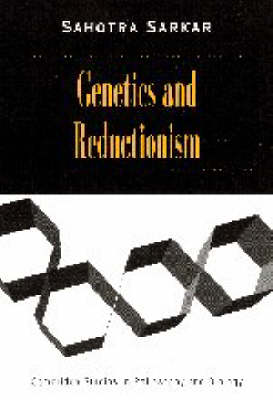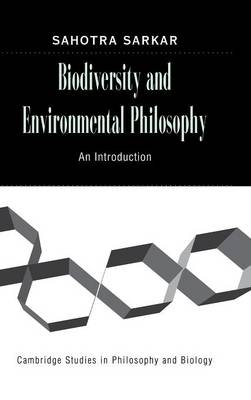Cambridge Studies in Philosophy and Biology
2 total works
With the advent of the Human Genome Project there have been many claims for the genetic origins of complex human behavior including insanity, criminality, and intelligence. But what does it really mean to call something 'genetic'? This is the fundamental question that Sahotra Sarkar's book addresses. The author analyses the nature of reductionism in classical and molecular genetics. He shows that there are two radically different kinds of reductionist explanation: genetic reduction (as found in classical genetics) and physical reduction (found in molecular genetics). This important book clarifies the meaning of the term 'genetic', shows how molecular studies have affected genetics, and provides the philosophical background necessary to understand the debates over the Human Genome Project. It will be of particular interest to professionals and students in the philosophy of science, the history of science, and the social studies of science, medicine, and technology.
This book explores the epistemological and ethical issues at the foundations of environmental philosophy, emphasising the conservation of biodiversity. Sahota Sarkar criticises attempts to attribute intrinsic value to nature and defends an anthropocentric position on biodiversity conservation based on an untraditional concept of transformative value. Unlike other studies in the field of environmental philosophy, this book is as much concerned with epistemological issues as with environmental ethics. It covers a broad range of topics, including problems of explanation and prediction in traditional ecology and how individual-based models and Geographic Information Systems (GIS) technology is transforming ecology. Introducing a brief history of conservation biology, Sarkar analyses the consensus framework for conservation planning through adaptive management. He concludes with a discussion of directions for theoretical research in conservation biology and environmental philosophy.

